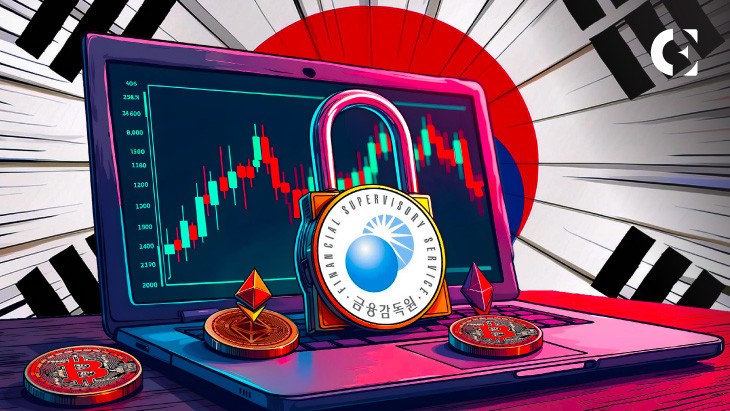South Korea’s Crypto Exchanges Gain Power to Freeze Transactions

Under a new amendment to South Korea’s Virtual Asset User Protection Act, crypto exchanges can now immediately suspend transactions for legitimate reasons. South Korean regulators introduced this new provision to combat hacking, money laundering, and fraud. This allows exchanges to act swiftly without notifying users beforehand, though they must do so afterward.
South Korea’s first crypto user protection act took effect on July 19, 2024. The Virtual Asset User Protection Act aligns with the country’s plan for industry expansion, ensuring customer security. In recent months, South Korea has implemented a series of rules to reduce increasing threats and unfair trading practices in the crypto industry.
Read also: Crypto Now Safer in South Korea Thanks to This New Foundation
To protect investors, the Financial Services Commission (FSC) legalized the Digital Asset Protection Foundation to safeguard cryptocurrencies, especially if exchanges fail. Additionally, following the increased volatility after the United States election, South Korea strengthened crypto regulations. These developments demonstrate the country’s growing commitment to establishing the crypto market and guaranteeing user safety.
In the latest amendment to the User Protection Act, the FSS stressed the importance of prior notice. The regulator stated that exchanges should generally give customers prior notice. However, according to the FSS’ statement, exchanges should be cautious when blocking transactions without prior notice, considering the emergency situation.
Upbit Faces Increased Scrutiny
South Korea’s largest crypto exchange, Upbit, is facing regulatory pressure over allegations of violating KYC regulations. During the exchange’s license renewal review, the Financial Intelligence Unit (FIU) of South Korea found that Upbit registered approximately 600,000 clients without proper customer verification procedures. This violation could result in fines of up to 100 million won, potentially complicating the license renewal.
Disclaimer: The information presented in this article is for informational and educational purposes only. The article does not constitute financial advice or advice of any kind. Coin Edition is not responsible for any losses incurred as a result of the utilization of content, products, or services mentioned. Readers are advised to exercise caution before taking any action related to the company.





 Bitcoin
Bitcoin  Ethereum
Ethereum  Tether
Tether  Dogecoin
Dogecoin  USDC
USDC  Cardano
Cardano  TRON
TRON  Chainlink
Chainlink  Bitcoin Cash
Bitcoin Cash  LEO Token
LEO Token  Stellar
Stellar  Litecoin
Litecoin  Hedera
Hedera  Cronos
Cronos  Ethereum Classic
Ethereum Classic  Dai
Dai  Monero
Monero  Stacks
Stacks  OKB
OKB  Cosmos Hub
Cosmos Hub  Algorand
Algorand  Theta Network
Theta Network  Maker
Maker  KuCoin
KuCoin  Gate
Gate  Tezos
Tezos  Polygon
Polygon  NEO
NEO  Zcash
Zcash  IOTA
IOTA  Tether Gold
Tether Gold  Synthetix Network
Synthetix Network  Bitcoin Gold
Bitcoin Gold  TrueUSD
TrueUSD  Zilliqa
Zilliqa  0x Protocol
0x Protocol  Holo
Holo  Enjin Coin
Enjin Coin  Dash
Dash  Qtum
Qtum  Ravencoin
Ravencoin  Siacoin
Siacoin  Basic Attention
Basic Attention  Decred
Decred  Ontology
Ontology  NEM
NEM  Lisk
Lisk  DigiByte
DigiByte  Waves
Waves  Status
Status  Nano
Nano  Numeraire
Numeraire  Hive
Hive  Pax Dollar
Pax Dollar  Steem
Steem  Huobi
Huobi  BUSD
BUSD  Ren
Ren  OMG Network
OMG Network  Bitcoin Diamond
Bitcoin Diamond  Bytom
Bytom  Kyber Network Crystal Legacy
Kyber Network Crystal Legacy